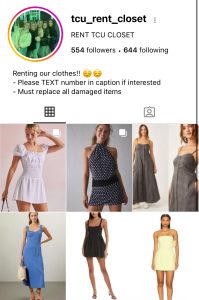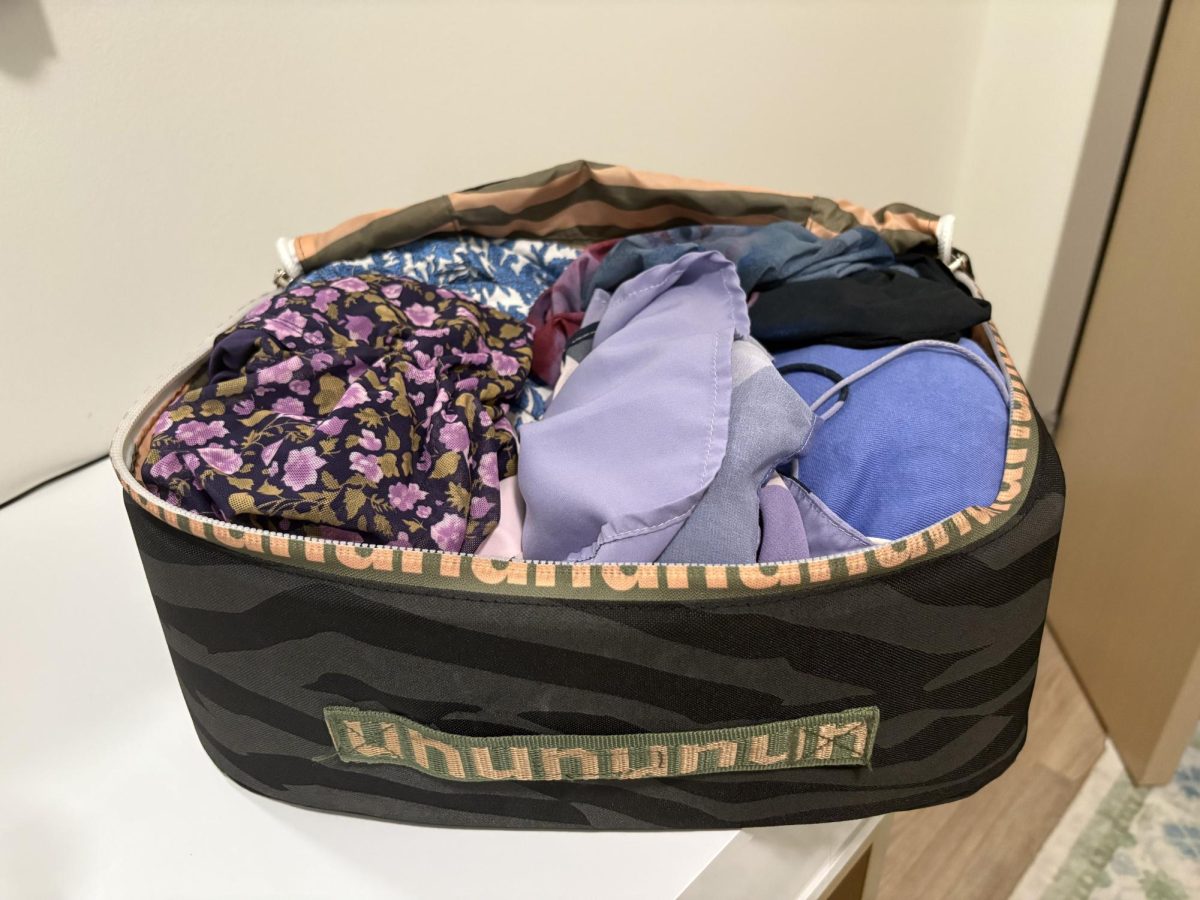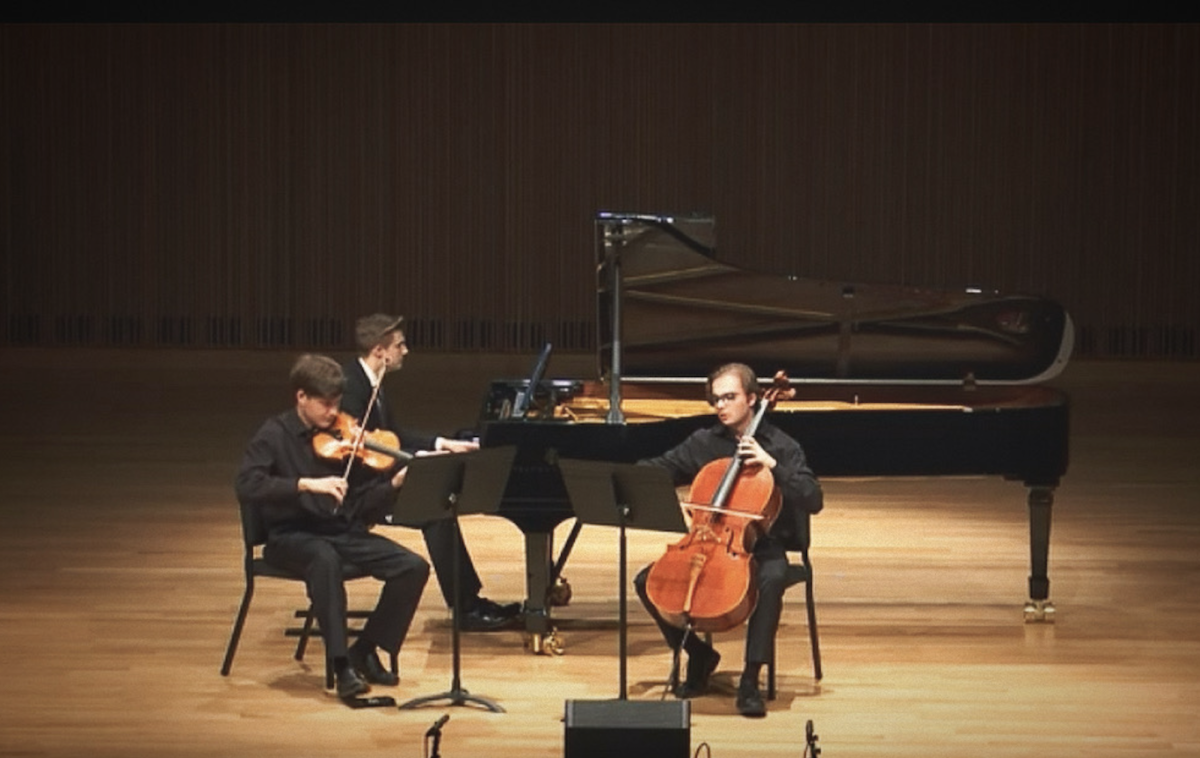A new shift in fashion has emerged, with many female students turning to clothing rental and subscription services.
“We’re seeing more ‘test-and-try’ behavior, where people experiment with trends or silhouettes before deciding what to buy new or secondhand,” Charles Freeman, chair of the Department of Fashion Merchandising, said. “This encourages smarter purchasing and more intentional wardrobes.”
Two of the top rental and subscription brands include Nuuly and Rent the Runway. Both brands have developed strategies that encourage customers to rent clothes instead of purchasing them at full price.
Nuuly charges $98 to rent six items for a month. Rent the Runway offers multiple subscription plans.
One of the most common plans charges around $100 for five items at a time. Another offers a one-time rental plan where customers can reserve an item — and a free backup size — for four or eight days.
View this post on Instagram
“A sorority sister told me the math she had done on saving money by using Nuuly in college, and that was enough to sell me,” McKenna Sims, a sophomore accounting major, said.
Both services allow customers to buy items in their monthly lineup that they want to keep for a discounted price.
“If I really like something that I rented and it’s worth the price, I usually buy it,” Sims said. “Most of the time they’re discounted a decent amount, so if I want to buy something, it’s often not that bad of a stretch.”
Clothing rentals have changed the fashion industry by giving more people access to high-end items, Freeman said.
“Students and early-career consumers can rotate higher-quality brands without long-term cost or closet space,” he said.
Sallie Boxley, a sophomore psychology major, said it helps her find game day fits and formal dresses for one-time occasions.
One feature that appeals to students is the flexibility of rental subscriptions. Both companies allow customers to pause memberships at any time. This advantage, along with damage coverage and easy return policies, strengthens their retention rates, Freeman said.
Junior accounting major Caroline Dunn has an Instagram account with friends where they post items available for rent.

“A friend and I were shopping for game day outfits. There was a specific dress that was $246, but as cute as it was, we knew that she was only going to wear that dress once,” Dunn said. “We were sitting there trying to decide whether it was worth it to spend $246 on a dress she would only wear once. We realized we could rent it out ourselves and make the money back that we paid to buy the dress.”
Students who rent out their clothes are making high-end clothes more accessible to others. Renting out clothes also helps justify the cost of expensive purchases.
These new clothing business strategies allow students studying fashion merchandising, supply chain and sustainability to evaluate these models firsthand.
“For TCU students, that means jobs across circular fashion — from data analytics and customer experience to textile care science, reverse logistics and sustainability reporting,” Freeman said.
With the emergence of rentals, many wonder about the trend’s longevity. Will consumers return to fast fashion rather than considering sustainable options?
“Consumers will still buy fast fashion, but many are also adopting blended wardrobes — some rented, some thrifted or resale, and fewer but better new purchases,” Freeman said.










